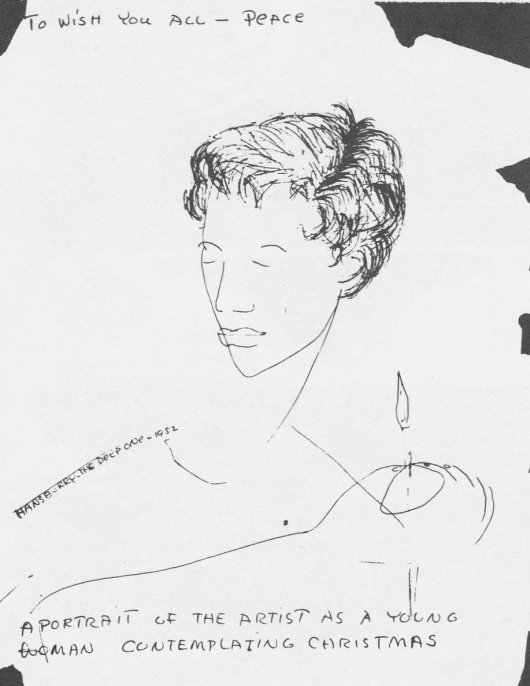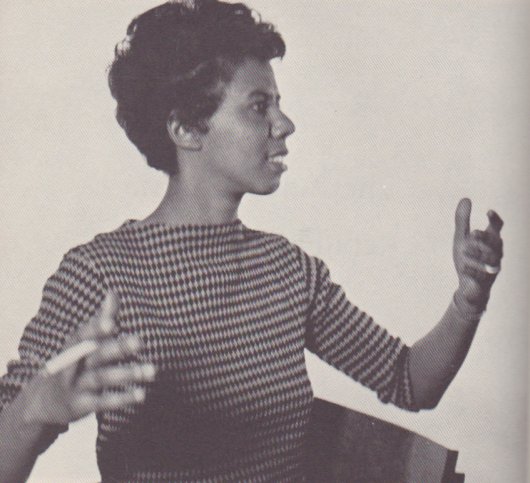
Sunshine
by ALEX CARNEVALE
She was devoted to the human race, but she was not romantic about it.
-James Baldwin
What to do with Lorraine Hansberry? The playwright died of pancreatic cancer at the age of 34. She was terribly afraid of hospitals, and it did not help that her sickness came on fast. She designated her Jewish ex-husband Robert Nemiroff as her literary executor and in 1969 he came out with a play of her letters, speeches and dramas titled To Be Young, Gifted and Black. He pushed her work endlessly, even writing the book for Raisin, the musical based on her earth-shattering work A Raisin in the Sun. Nowhere in this 265-page celebration of her life does he hazard to mention that Lorraine was gay.
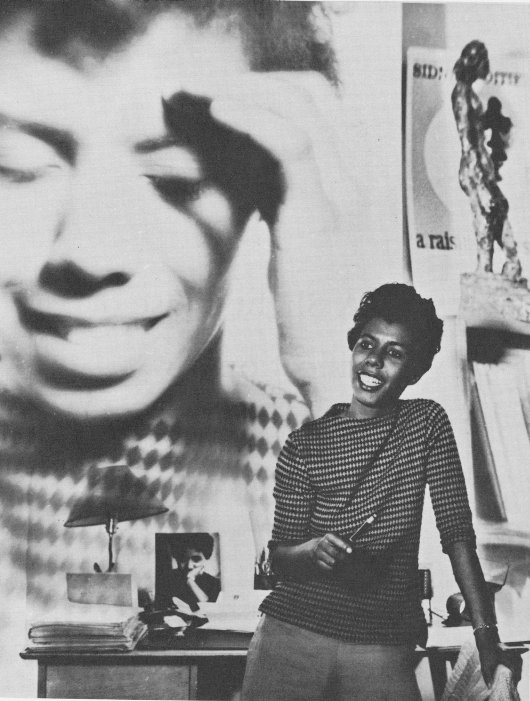
Nemiroff died in 1991. He divorced Hansberry three years before her death, after which she began living an openly lesbian existence in Greenwich Village. In some ways, he did understand her work; he certainly admired it. In others, she could not have chosen a worse inheritor of her legacy. Her peers and her enemies were already confused by Lorraine in her lifetime, and turning A Raisin in the Sun and her underappreciated play about white intellectuals and black people The Sign In Sidney Brustein's Window into loud musicals diluted the works. He wanted to keep her ideas alive; he smothered them.
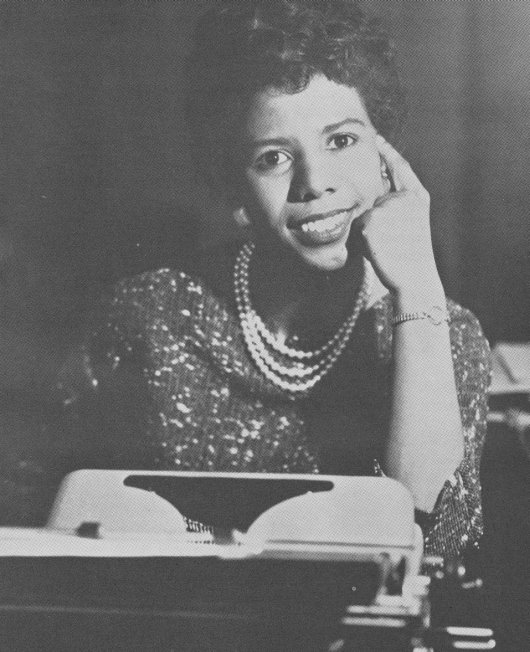
The reaction to A Raisin in the Sun when it appeared in 1959 surprised a lot of people. Unlike most fictive depictions of blacks, the story took place in the here and now. The play was based on the real life events endured by her trailblazing father, who was two things that shocked whites in the south side of Chicago: he was a successful African-American businessman, and he was a Republican. Carl Hansberry believed strongly in the importance of private enterprise, and his idea to split up white houses and multiply them into smaller black residences changed the city he lived in. With the NAACP, he fought restrictive housing laws that discriminated against blacks, and won.
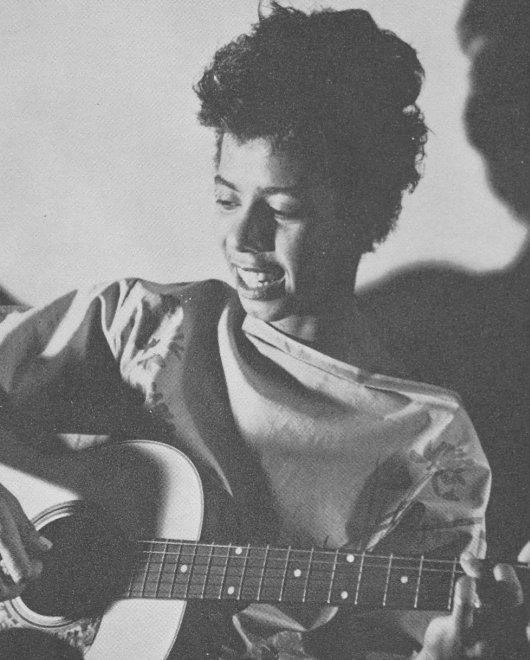
Her letters to the gay rights publication The Ladder fit her father's mission. The journal promoted assimilation, not separation from heteros. It attacked the lesbian writer Marijane Meaker for her pulpy lesbian romances, which they viewed as unfair and unsympathetic portrayals of women. Lesbians had few meeting places in those days; editorials in major newspapers opined that women should not even wear pants. The Ladder was a safe space for Hansberry to quietly come out, even though her only byline was her initials and other letters were anonymous.
She wrote to the fledgling lesbian journal, "I'm glad as heck that you exist. You are obviously serious people and I feel that women, without wishing to foster any strict separatist notions, homo or hetero, indeed have a need for their own publications and organizations. Our problems, our experiences as women are profoundly unique as compared to the other half of the human race."
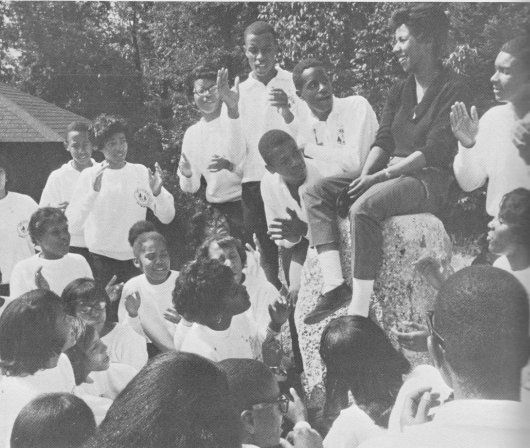
Her education had stalled at the University of Wisconsin. In his celebration of her life, Nemiroff dedicates several chapters to this period, wistfully recalling for his former wife that except for the snow, "in every other way college was a bust." He describes her thrilling rush at the sound of African drums, at her connection to a homeland several generations in the past.
It's all very pat, until he gives things over to Lorraine, who remembers not this connection to Africa, but a Frank Lloyd Wright lecture: "he attacked almost everything - and, foremost among them, the building he was standing in for its violation of the organic principles of architecture; he attacked babbitry and the nature of education saying we put in so many fine plums and get out so many fine prunes. Everyone laughed - the faculty nervously I guess; but the students cheered. I left the University shortly after to pursue an education of another kind."
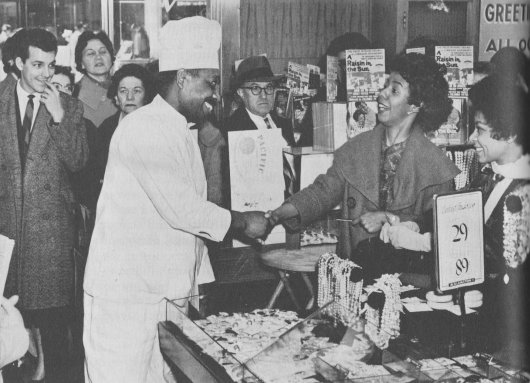
When A Raisin in the Sun took the American theatrical world by storm, she was 29. This is constantly emphasized by her biographers, as though she were not already an artist working at the peak of her powers. Her age became just another excuse to invalidate her art. James Baldwin recalled holding her purse as she signed autographs until her hand got tired. For those months, her phone never stopped ringing off the hook.
A Raisin in the Sun has been successful everywhere it has appeared. It is the only play by an African-American playwright routinely read as part of high school and college curriculums. An ABC adapation of the play in 2008 starring P. Diddy and Phylicia Rashad drew record ratings. That network, and every other network, never took the hint. Sure, a surprisingly large audience was interested in watching African-Americans in a serious drama, but what did that matter when they were completely conditioned to having white writers write black comedies?
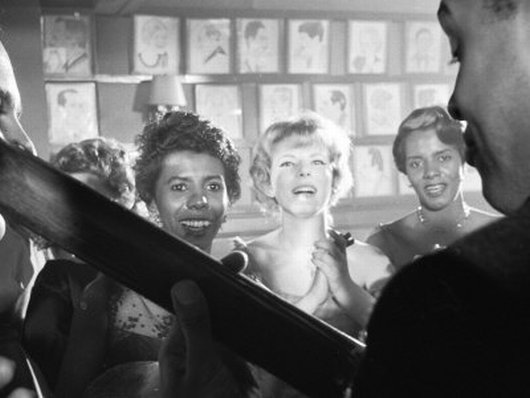
But then, an artist of color is always writing outside of her time. Lorraine's impact on the African-American playwrights that would follow in her footsteps is evident in every line written by the likes of Suzan-Lori Parks and Anna Deavere-Smith. Writing as she was in the early 1960s she felt completely alone, separated by sexual preference and gender from various movements that should have embraced both her and her work.
Nemiroff seems to have been captivated by her charm; it is evident in every utterly photogenic portrait taken of Lorraine. Even his title for his dramatic eulogy, To Be Young, Gifted and Black, is somehow a slight on the woman, who he at one point calls "spoiled", describing her body as "straight, perfectly molded, eager and sure in its movements...one could only think of youth." Some kind of prize?
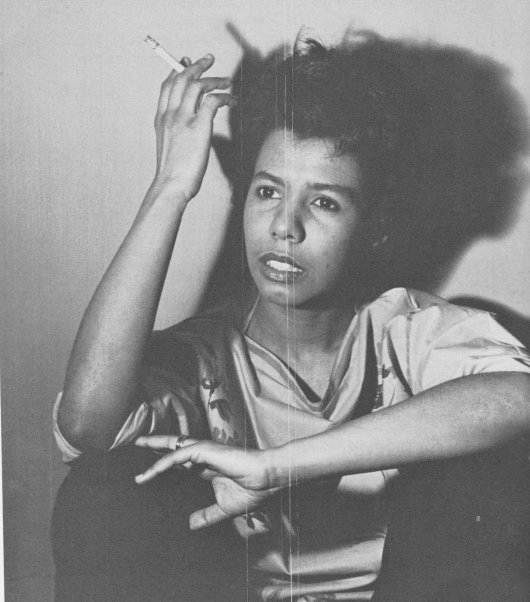
He could not see her for what she was, so he tried to view her the way others did. The marriage cannot have been much. On Easter 1962, she wrote, proto-blogging:
Yesterday I was alone. And so, I did some work; I don't really remember what. And then in a fit of self-sufficiency went shopping in the supermarket and bought food: liver, steak, chops. I rather knew the kind of weekend that was coming. But was not depressed... The being alone is better. That is what one has to learn ultimately. It is really is better to be alone; it is horrible - but it is better.
Tonight worked. Productively. But can't get excited about any accomplishment tonight.
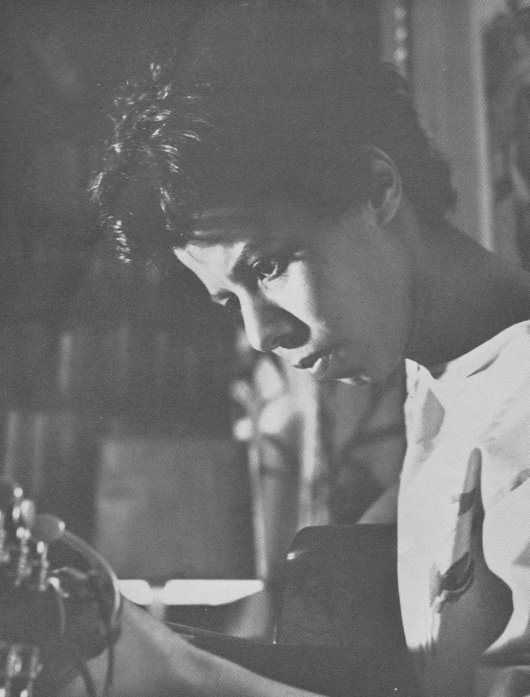
Worst of all, I am ashamed of being alone. Or is it my loneliness that I am ashamed of? I have closed the shutters so that no one can see. Me. Alone. Sitting at the typewriter on Easter Eve; brooding; alone. Upstairs I will keep the drapes drawn. No one must know these hurts. Why? I shall wash my hair. It is helping my skin. I shall be beautiful this time next year: long hair and clear skin. And I shall still be lonely. On Easter eve. At the typewriter...
I wish I could have known her better.
Alex Carnevale is the editor of This Recording. He tumbls here and twitters here. You can find an archive of his writing on This Recording here.
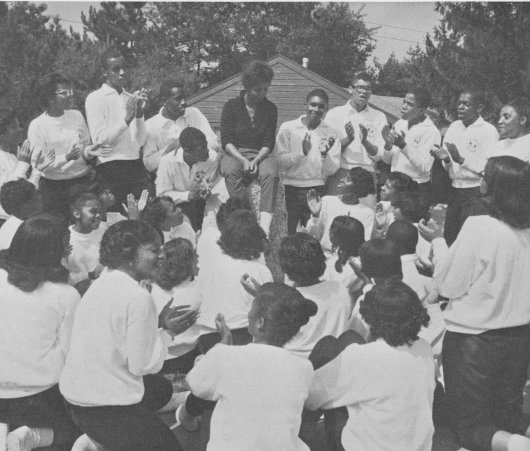
America As Seen Through
the Eye of the TV Tube
by LORRAINE HANSBERRY
1. Most people who work for a living (and they are few) are executives and/or work in some kind of office.
2. Sex is the basis of all psychological, economic, political, historical, social - in fact, known, problems of man.
3. Sex is very bad.
4. Sex is very good and the solution to all psychological, economic, political, historical, social, in fact, known problems of man.
5. The present social order is here forever and this is the best of all possible worlds.
6. The present social order is here forever and this is the worst of all possible worlds.
7. The present social order is all in the mind.
8. Women are idiots.
9. Negroes do not exist...
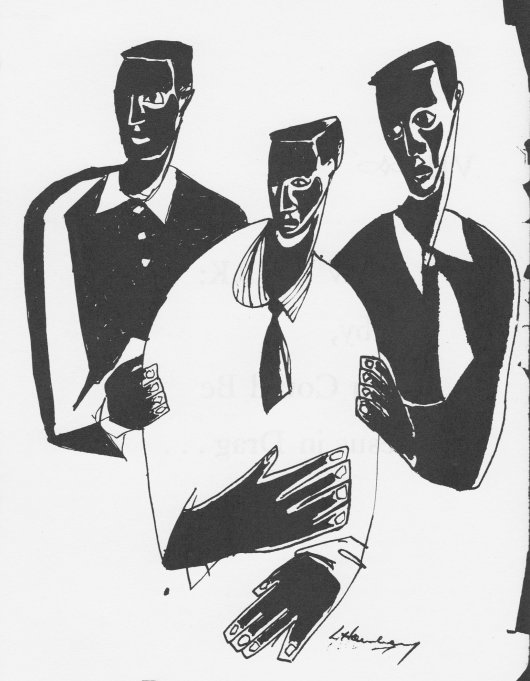
"Desire" - Mates of State (mp3)
"At Least I Have You" - Mates of State (mp3)
"Basement Money" - Mates of State (mp3)
